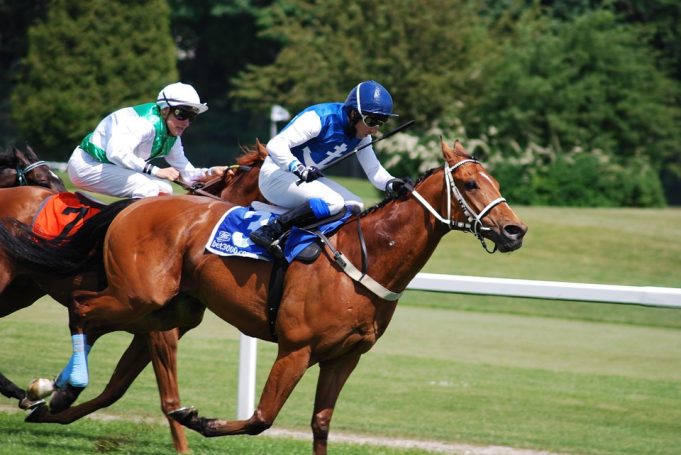Horse racing is an equestrian sport that has been practiced over the centuries. Its origins date back to about 4500 BC among the nomadic tribesmen of Central Asia who first domesticated the horse. Since then, horse racing has flourished as the Sport of Kings.
Since the beginning of recorded history, horse racing was an organized sport for all major civilizations around the globe. The ancient Greek Olympics had events for both chariot and mounted horse racing. Then the Romans embraced the sport. In the Roman Empire, chariot and mounted horse racing were major industries with imported bloodlines, breeding programs, exhaustive training routines, and all the accoutrements of organized wagering like bookmakers, horse-racing tracks, scandals, hot tips, and most of all, excitement. The decline of the Roman Empire also saw a decline in organized public racing until well into more modern times.
Horse racing then became a professional sport as early as the 12th century, when the English knights returned from the Crusades with Arab horses. Over the next several hundred years, an increasing number of Arabian stallions were imported and bred to English mares, producing horses that combined endurance and speed. These are the breed of horses that are used in horse racing today.
With the arrival of better transport links and other technological innovations in the 19th century, horse racing became a sport that is watched by millions of people each year. Leading newspapers began to give horse racing far more coverage, and there was a significant increase in the volume of betting on races. The arrival of professional on-course bookmakers into the sport brought with it different challenges. The Jockey Club reacted by establishing high standards of order, integrity, and discipline to ensure that the sport will continue to prosper.
Racecourse attendance has become increasingly popular by the early 21st century. After a drop in attendance in the 1970s and 1980s, racing posted an attendance figure of 6 million in 2004. Now internet wagering has horse racing off and running in ways never imagined. With the emergence of online horse racing betting, the Sport of Kings has attracted new audiences who, rather than standing trackside studying the form guide, would prefer to place their horse racing bet from the comforts of their own homes. Wagering on the outcome of horse races has been an integral part of the appeal of the sport since prehistory and today is the sole reason horse racing has survived as a major professional sport.
One of the principal forms of horse racing, which is popular in many parts of the world, is Thoroughbred racing. Harness racing is also popular in the eastern United States and more popular than Thoroughbred racing in Canada and parts of Europe. Quarter horse racing is also popular in the western United States and Florida. Racing with purebred Arabian horses exists in several states in the United States, as well as in most of Europe and the Middle East.
The breeding, training and racing of horses in many countries is now a significant economic activity as, to a greater extent, is the gambling industry which is largely supported by it. Exceptional horses can win millions of dollars and make millions more by providing stud services, such as horse breeding.
Article source: Expert Articles
















